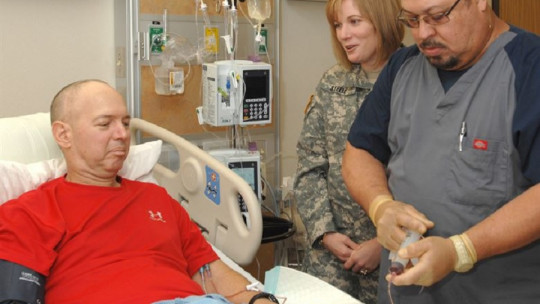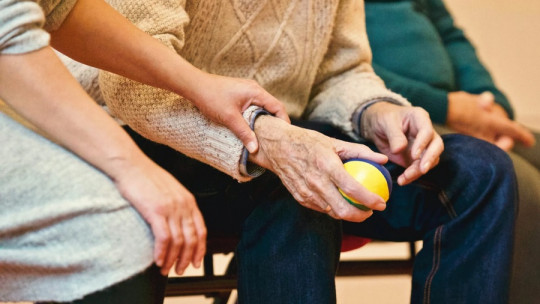He Caregiver Syndrome It arises in those people who play the role of primary caregiver for a person in a dependent situation. It is characterized by both physical and mental exhaustion, with a picture similar to that of work stress or “Burnout”.
What is Caregiver Syndrome?
It is manifested by those caregivers in charge of people who require constant help due to presenting some degree of neurological or psychiatric alteration or deficiency, such as some type of dementia.
In most cases, The decision to become a caregiver is usually imposed by circumstances without a deliberate decision-making process. Therefore, these people suddenly face a new situation for which they are not prepared and which consumes most of their time and energy, to the point of becoming the center of their life.
Changes that occur in the life of the caregiver
The life of the caregiver changes radically as a result of the required demand. Your new responsibilityrequires a profound transformation of your way of life and quality of life since, in general, no one is prepared to live 24 hours a day with a person (generally a beloved family member) who progressively deteriorates day by day. This situation will most likely generate deep affective and emotional reactions: sadness, tension, anger, guilt, frustration, confusion… that those who perform these care-type functions so frequently suffer.
Some of the changes that occur in your life in the short and long term:
Causes of Caregiver Syndrome
Caregiver stress arises mainly from the different ways of perceiving the patient’s needs, the investment of time, resources, conflicts between their expectations and the rest of the family members, feelings of guilt…
On many occasions, The conflict arises due to the inability to satisfy the needs of the patient family and personal. It is very common for the caregiver to give up areas of their social and work life given the needs required by the person who is caring for them.
Some signs of caregiver syndrome disorder
It is important that the family and friends of the main caregiver be alert to a series of symptoms that may be signs of the presence of the disorder:
Therapeutic recommendations
It is as important to take care as it is for us to take care of ourselves; This will allow us to continue providing help in the best possible conditions, without getting burned.
It is essential that:
- Learn to ask for help and delegate tasks. It is impossible for you, without help, to carry out the number of tasks you did before caring for your family member, and in the same way.
- Don’t feel guilty for laughing or having fun If you are happy it will be easier for you to cope with the situation.
- Take care of your physical appearance this will improve your psychological well-being.
- Avoid self-medication.
- Communicate and express your feelings to other family members.
- reach agreements. All members must collaborate in the care of the dependent family member.
- Be assertive. It is important to treat the dependent person and the rest of the family members in a kind and communicative manner. This will avoid misunderstandings and everyone will be more willing to help.
- Work on empathy. Putting ourselves in someone else’s shoes can help us understand their point of view and understand their behavior.
- Manage emotions. You have to know how to control feelings such as anger or frustration.
- Work on cognitive stimulation of dependent people. To do this, it is necessary to carry out reading practices with them, talk about everyday events so that they have a notion of reality and remember old stories and reminiscences that stimulate their memory.
- Say “no” to excessive demands of the dependent person.









